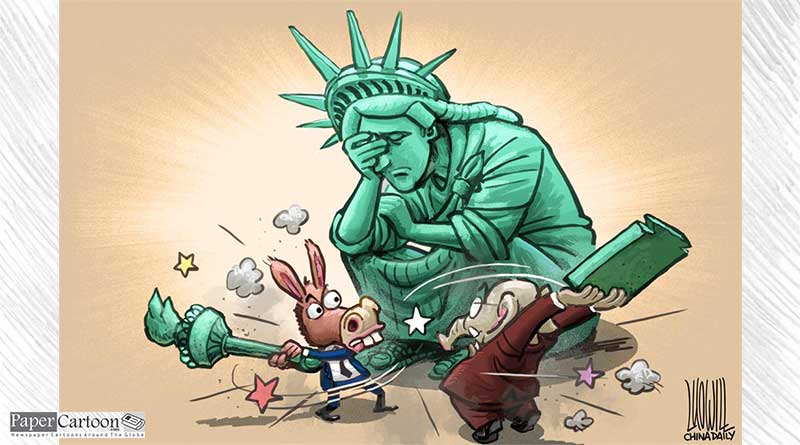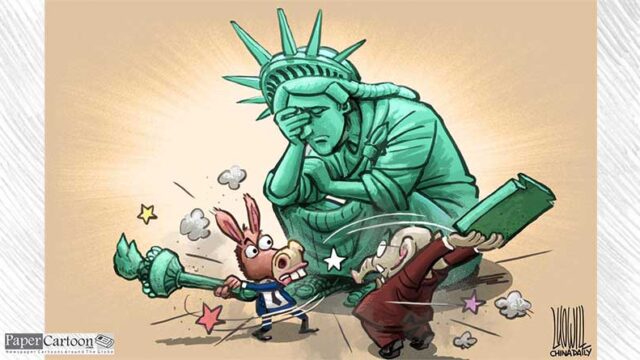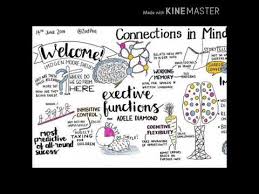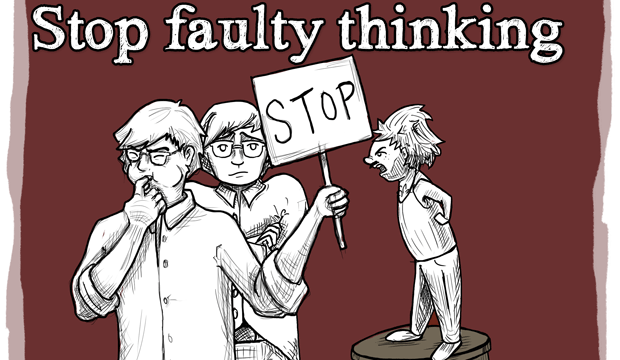
Jujutsu is a Japanese martial art that originated as the “gentle art” of manipulating an opponent’s force against them rather than confronting it with one’s own force. In the world of politics, many in high office have become experts in the opposite form of this art – what I call “kirajutsu” or “killer art”. Another description of this ability is that politicians fall prey to the cleverness of their own argument. By trying to manipulate their opponents, they end up manipulating and deceiving themselves and the country. Politics is no longer the art of the possible, but the art of benefitting oneself.
Like any good lawyer, politicians learn to argue both sides of an issue, using whatever small rationalization is necessary to buttress their argument and score points. It’s an excellent skill that provides insight into how someone else, say an opponent, views the same set of facts. That gives insight into the weakness of that opponent. But in developing such a skill, politicians forget the moral aspects of their arguments. Instead of living and speaking with both the head and heart, they shelve the heart. The useful skill then becomes a dangerous tool-it becomes kirajutsu. Thus, one year a politician can justify waiting to nominate a supreme court justice because there “are only 88 days to election” and we must “let the people decide.” Four years later, and with a straight face, he argues vehemently that we must nominate a Supreme Court justice even if it’s “only 40 days to election” because it’s “constitutional.” It is the finest of kirajutsu moves.
Like most intellectual martial arts, kirajutsu and the cleverness of the combatants become an intellectual game of superiority. What such blatant arrogance produces, however, is cynicism and reduction in trust from those observing these hijinks. Citizens are not stupid and see through the politician’s cleverness, and in the long term the toxicity of their game erodes our belief in democracy. Unfortunately for us, both political parties, Republicans and Democrats, practice kirajutsu because for them it’s about power, not about doing the right thing for the country. Their selfish desire to benefit themselves or their affiliates becomes an inexorable force. When such a game is only about power, the country loses in the long term.
The most severe effects are on trust and truth. Our trust toward leaders to tell the truth decays, assuming they ever told the truth. Kirajutsu makes truth a relative value, based on circumstances. While politicians fool themselves that they are concerned with pragmatic truth, their conscience, in a futile attempt, tells them otherwise. That there is a different truth, one that is durable, not a function of circumstances and changing desires. But their kirajutsu cleverness swamps their small inner voice. The touchstone to a truthful life evaporates amidst the weaknesses and temptations of their human nature.
How do we get out of this democracy-destroying political kirajutsu? How do politicians recover their ability and courage to do what is right? The only way out is for everyone to recognize the truth. We must recognize that we are all one and what hurts others hurts us. We must remember the importance of morality, of eternal truths, of the ones we learned in kindergarden. Additionally, we must recognize we are one nation which can only survive together, not apart. And that kirajutsu, while fun and temporarily satisfying, is tearing us apart.










